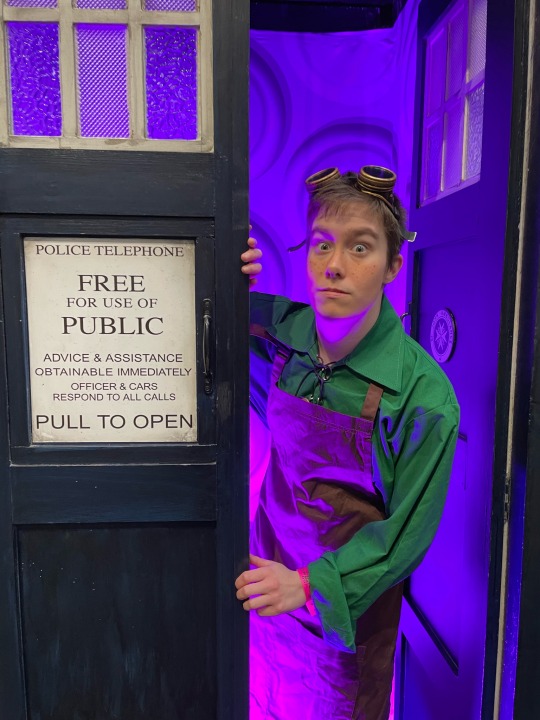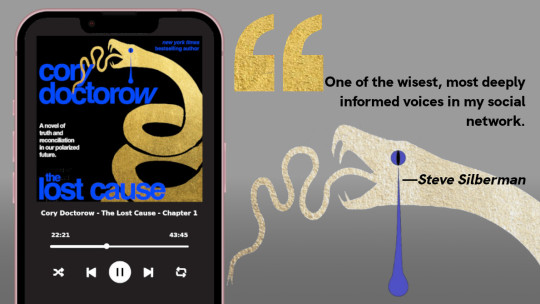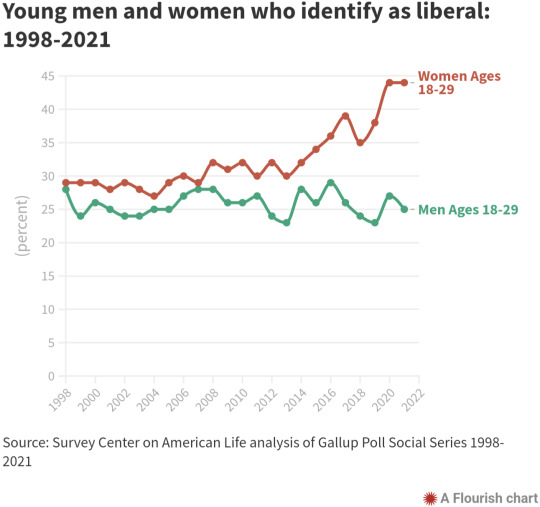#polling
Text
inspired by this post
21 notes
·
View notes
Text
I hope people reblog to give us a wide sample size, also I hope people put in the tags explaining in greater detail, or mention any category I might not have thought of
24K notes
·
View notes
Text
(My previous cosplays were Varian from Tangled, Timothy the Deaf Vampire, a random Newsie & Tristan Thorne from Stardust if you’re interested)




726 notes
·
View notes
Text
was having a conversation with a friend about what a “normal” amount of partners to have is. This is about any kind of committed partner— not just romantic or queer platonic, but sexual, alterous, wavership, and “undefined but my partner regardless.”
If you have more than nine partners, good god do I respect your time management.
#polls#monogamy#non monogamy#polyam#queerplatonic#platonic partners#gay#alterous relationship#arospec#acespec#please reblog#polling#Wavership
1K notes
·
View notes
Text
REBLOG FOR THE FLOWER
#polls#polling#tumblr polls#plants#flowers#science#botany#nature#environmentalism#fun#poll#beautiful#cursed#art#bees#biology#citizen science#science side of tumblr#lol#insects
171 notes
·
View notes
Note
Do you have any advice for dealing with election anxiety?
I think/hope so!
First, a couple caveats:
I'm from the US, so US perspective, and about US 2024 elections
I know more about politics/follow them more than like, at least 85% of US Americans? But I am not an expert.
Environment/climate news and climate hope are science-based and can be measured/predicted empirically wayyyyy more than politics can, because People
I'm not getting into the trenches around Democrats vs. the Left vs. Liberals vs. Progressives. In this post, we're all in one big venn diagram of mostly interchangeable terms
So, first off, maybe my biggest piece of advice is this: The antidote to anxiety is action.
Find something you can do to help - anything. Anxiety is like fear - it's part of your brain's alarm system. It's part of your brain's mechanism for telling you that you need to do something
So if you listen to that alarm and do something, your brain won't feel the same need to desperately escalate the alarm system
You can look up and sign up for actions, protests, petitions, letter-writing campaigns, phone banking, canvassing, and more for candidates near you at Mobilize.us (no Repubs on here I promise). They also work with Swing Left a lot - a group that helps voters look up and focus on helping the nearest race that is actually competitive (because most of them aren't!)
Again, that's Mobilize.us and Swing Left as two of the best places to find out how and where to help, and sign up to do so
Other than that, I don't have advice specifically so much as I have "some useful and more hopeful ways to think about the coming US election" and to a lesser extent democracy in general
1. The media is going to underreport how well the Left and/or Democrats are doing, basically no matter what.
So, although we can't get cocky about it, this is something absolutely worth remembering when you see just about any polling or predictions about the 2024 elections.
Here's why:
Poling is weird and often inaccurate and skews in a lot of ways and is inherently biased, and it's less accurate the further you are from an election. Also, the electoral college is a huge complication here
This skewing is built into both the interpretation of the poll and the design of the poll itself - how many people do they sample? Demographic spread? Polls try to go for "likely voters," but how well can you predict that, especially as voting rates for young people and marginalized groups are rising, often dramatically?
Right now, those biases are all skewing most to all polls and predictions to the right. Including from basically all pollsters, as well as left-wing media and news outlets.
Now, THAT'S NOT INHERENTLY A BAD THING. It's not because they don't want the Left to win. It's because in 2016, basically all mainstream media, including left-leaning media, said that there was a very low chance Trump was going to win. They said that Hillary Clinton had it in the bag. So they're all correcting for the huge inaccuracy in the 2016 (and 2020 and 2022 tbh) elections
Not only were they catastrophically and humiliatingly wrong about that, they then had to deal with the fact that that very reporting was part of why Clinton lost in 2016 - voters heard she was probably going to win, so they felt safe staying home instead of voting
And then the 2020 election polls were also super wrong, mostly in the other direction
Polling as a field is undergoing a massive shakeup around this, trying to figure out how to not fuck up that badly again, but they haven't figured it out yet, so right now they're skewing things to compensate
That's for the sake of both their own credibility and, you know, the part where just about no one in either left-wing or mainstream media or mainstream polling orgs wants Trump to win
So they're going to underreport Democratic chances on purpose to a) compensate for the bias skewing things toward Democrats in their models, and b) to make sure that they don't accidentally help Trump win again
Sources: x, x, x, x, x, x, x, x, x, x, x
Reasons the Republicans are in more trouble than a lot of people think
Democrats are largely closing ranks hard around Biden, because no matter what they think of Biden, they know a Repub victory would be a thousand times worse
Republicans, however, are absolutely NOT unifying around a candidate. And they're also the ones who go around saying a ton of awful and offensive and wildly untrue things about their opponents. Meaning that the Republican primary is about to get fucking messy, and probably all of their candidates will be tarred in the process
So, basically, the Republican candidates are all going to be busy smearing the fuck out of each other - while Biden mostly doesn't have to deal with that level of negative campaigning against him for months and months
As studies show, in politics, "a negative frame is much more persistent, or “stickier,” than a positive one. If you come at an issue negatively, but are later reminded of the policy's positive aspects, you will still think it's a bust."
Also, Biden is gonna get basically all presidential-race left-wing big-name donor money, while the Right will have that money split a bunch of ways and blow through it hard on infighting, creating a probable funding gap
Trump's campaign contributions are all going to pay his legal fees. Like, to the extent that last month, his main PAC had just $4 million in cash on hand - because they siphoned over $101 million to pay his legal fees (muahahaha)
Sources: x, x, x, x, x, x, x
Other hopeful things to consider
Yes, Trump's indictments and trials are, unfortunately, boosting his numbers among his supporters. However, that's only with the hard right wing - and you can't win a general election with just the far right. He needs to appeal to independent voters and moderate Repubs - and every indictment and trial hurts his chances with them. x, x
In 2022, literally everyone was predicting a "red tsunami." And they were wrong: it never happened. Instead, Democrats picked up a seat in the senate, lost a third or less of the seats in the House that they were expected to, and won a number of statewide races. x, x, x, x, x
DeSantis's decision to go to war with Disney stands to do him a lot of fucking hard. Disney isn't just powerful in general - it's an unbelievably powerful force and employer in DeSantis's home state of Florida. Disney has already pulled a $1 billion project from Florida due to the feud, is responsible for "half" of FL's tourism industry, and and is branding DeSantis as "anti-corporation" and "anti-business" - dangerous charges in the right wing. x, x, x, x, x, x
Abortion is an issue that gets voters to the polls. This is an issue on which politicians are wildly out of step with voters: Numbers change depending on how you break it down, but generally 60% to 70% of Americans think abortion should be legal - which is, in election terms, is a landslide. For years, that momentum has been with Republicans. Well, now it's with us, and so far pro-choice candidates and ballot propositions have done way better than expected. To quote Vox, in 2022, "abortion rights won in all six states with abortion ballot measures, including in red states like Kentucky and Montana that otherwise elected Republican lawmakers." x, x, x, x, x, x, x, x, x
#Anonymous#ask#me#us politics#us elections#election 2024#trump#biden#democrats#florida#united states#abortion access#pro choice#abortion rights#reproductive rights#political campaign#polling#statistics#good news#hope
146 notes
·
View notes
Text
What Americans want

Tomorrow (Oct 19), I'm in Charleston, WV to give the 41st annual McCreight Lecture in the Humanities. And on Friday (Oct 20), I'm at Charleston's Taylor Books from 12h-14h.

If you aspire to be a Very Serious Person (and whomst amongst us doesn't?) then you know why we can't have nice things. The American people won't stand for court packing, Congressional term limits, the abolition of the Electoral College, or campaign finance limits. Politics is the art of the possible, and these just aren't possible.
Friends, you've been lied to.
The latest Pew Research mega-report investigates Americans' attitudes towards politics, and honestly, the title says it all: "Americans’ Dismal Views of the Nation’s Politics":
https://www.pewresearch.org/politics/2023/09/19/americans-dismal-views-of-the-nations-politics/
The American people hate Congress. They hate the parties. They hate the president. They hate the 2024 presidential candidates. They loathe the Supreme Court. Approval for America's bedrock institutions are at historic lows. Disapprovals are at historic highs.
The report's subtitle speaks volumes: "65% say they always or often feel exhausted when thinking about politics." Who can blame them? After all: "63% express not too much or no confidence at all in the future of the U.S. political system."
"Just 4% of U.S. adults say the political system is working extremely or very well": that is to say, there are more Americans who think Elvis is alive than who think US politics are working well.
There are differences, of course. Young people have less hope than older people. Republicans are more reactionary than Democrats. Racialized people trust institutions less than white people.
But there are also broad, bipartisan, cross-demographic, intergenerational agreements, and these may surprise you:
Take Congressional term-limits. 87% of US adults support these. Only 12% oppose them.
Everyone knows American gerontocracy is a problem. I mean, for one thing, it's destabilizing. There's a significant chance that neither of the presumptive US presidential candidates will be alive on inauguration day:
https://pluralistic.net/2023/07/01/designated-survivors/
But beyond the inexorable logic of actuarial science, there's the problem that our Congress of septuagenarians have served for decades, and are palpably out-of-touch with their constituents' lives. And those constituents know it, which is why 79% of Americans favor age limits for elected officials and Supreme Court justices:
https://www.pewresearch.org/politics/2023/09/19/how-americans-view-proposals-to-change-the-political-system/
Not all of this bipartisan agreement is positive. 76% of Americans have been duped into favoring a voter ID requirement to solve the nonexistent problem of voter fraud by imposing a racialized, wealth-based poll-tax. But even here, there's a silver lining: 62% of American support automatically registering every eligible voter.
Threats to pack the Supreme Court have a long and honorable tradition in this country. It's how Lincoln got his antislavery agenda, and how FDR got the New Deal:
https://pluralistic.net/2023/03/25/consequentialism/#dotards-in-robes
The majority of Americans don't want to pack the court…yet. The race is currently neck-and-neck – 51% opposed, 46% in favor, and with approval for the Supreme Court at lows not seen since the 2400 baud era, court-packing is an idea with serious momentum:
https://www.pewresearch.org/short-reads/2023/07/21/favorable-views-of-supreme-court-fall-to-historic-low/
66% of Democrats want the court packed. 58% of under 30s – of every affiliation – favor the proposal.
And two thirds (65%) of Americans want to abolish the Electoral College and award the presidency to the candidate with the most votes. That includes nearly half (47%) of Republicans, and two thirds of independents.
Americans believe – correctly – that their elected representatives are more beholden to monied interests than to a sense of duty towards their constituents. Or, as a pair of political scientists put it in their widely cited 2014 paper:
Economic elites and organized groups representing business interests have substantial independent impacts on U.S. government policy, while average citizens and mass-based interest groups have little or no independent influence.
https://www.cambridge.org/core/journals/perspectives-on-politics/article/testing-theories-of-american-politics-elites-interest-groups-and-average-citizens/62327F513959D0A304D4893B382B992B
So yeah, no surprise that 70% of Americans believe that voters have too little influence over their elected lawmakers. 83% of Republicans say big campaign donors call the shots. 80% of Democrats agree.
Which is why 72% of Americans want to limit political spending (76% for Democrats, 71% for Republicans). The majority of Americans – 58% – believe that it is possible to get money out of politics with well-crafted laws.
Americans truly do have a "dismal view of the nation's politics," and who can blame them? But if you "feel exhausted thinking about the nation's politics," consider this – the majority of Americans, including Republicans, want to:
abolish the electoral college;
impose campaign spending limits;
put term limits on elected officials and Supreme Court justices;
put age limits on elected officials and Supreme Court justices; and
automatically register every eligible American to vote.
What's more, packing the Supreme Court is a coin-toss, and it's growing more popular day by day.
Which is all to say, yes, things are really screwed up, but everyone knows it and everyone agrees on the commonsense measures that would fix it.

If you'd like an essay-formatted version of this post to read or share, here's a link to it on pluralistic.net, my surveillance-free, ad-free, tracker-free blog:
https://pluralistic.net/2023/10/18/the-people-no/#tell-ya-what-i-want-what-i-really-really-want


My next novel is The Lost Cause, a hopeful novel of the climate emergency. Amazon won't sell the audiobook, so I made my own and I'm pre-selling it on Kickstarter!
#pluralistic#gerontocracy#corruption#politics#polling#usa usa usa#pew#term limits#scotus#pack the court#citizens united
200 notes
·
View notes
Text
Young women are more likely to identify as liberal now than at any time in the past two decades, a trend that puts them squarely at odds with young men.
44% of young women counted themselves liberal in 2021, compared to 25% of young men, according to Gallup Poll data analyzed by the Survey Center on American Life. The gender gap is the largest recorded in 24 years of polling. The finding culminates years of rising liberalism among women ages 18 to 29, without any increase among their male peers.
Several societal forces have conspired to push young women to the left in recent years, including the #MeToo movement, former President Trump, rising LGBTQ identification and, most recently, abortion policy. Slower-cooking trends in marital status and educational attainment have also nudged the needle.
“I think there is a big generational shift that happened with Generation Z women who were really coming of age in the last five years,” said Kelsy Kretschmer, a sociologist at Oregon State University who studies gender politics.
The rift between young men and women may widen further. Earlier this year, the Supreme Court overturned Roe v. Wade, a precedent that had protected abortion as a constitutional right for nearly half a century. The ruling has energized young women. New survey data, released this week, shows that 61% of young women consider abortion a critical issue, compared with 36% of all Americans.
“I would always choose a candidate that’s pro-abortion,” said Rose Merjos, 21, a government major at Wesleyan University in Connecticut who is an avowed liberal. “Almost everyone either knows someone who has had an abortion or has had one themselves. This is something everyone can relate to.”
The share of men who identify as liberal has held fairly steady for almost 25 years, according to annual Gallup surveys. Roughly one-quarter of men ages 18 to 29 term themselves liberal, year after year.
Meanwhile, among young women, liberalism has exploded. In the late 1990s and early 2000s, fewer than 30% of women identified as liberal. The liberal camp grew through the second term of former President George W. Bush. It expanded further during the tenure of former President Obama. It reached 39% in 2017 with the inauguration of Trump. In the last two years, liberalism surged anew.

“Young women today are much more liberal than young men,” Daniel Cox wrote in a June newsletter of the Survey Center on American Life, a project of the American Enterprise Institute. His work documents “a growing political rift” between young women and men.
Merjos attends a university long associated with both liberalism and activism. These days, though, she senses more of both among the women.
“In all of my government classes, there are probably two men out of 18 people,” she said. “ACLU [American Civil Liberties Union], that’s mostly women. I’m wondering if women are maybe just more inclined to be involved in the community, engaged in the community. And that liberalizes them.”
Ezra Meyer, 22, is a senior at the George Washington (GW) University who leads the College Republicans. He is a conservative on a campus that is overwhelmingly liberal and largely female. In conversations with classmates about politics, he treads lightly.
“My metric for deciding if I’m going to be friends with someone really does not come down to what their politics are,” he said. “It comes down to how tolerant they are.”
Meyer doesn’t know whether the men at GW skew more liberal or conservative than the women. But he has noticed a distinct trend among campus conservatives this fall.
“We’ve been doing a lot of recruiting of freshmen on campus,” he said. “And I would say, overwhelmingly, it has been male. The conservative females that do get involved, there’s fewer of them, but they tend to be way more passionate and way more involved.”
Several factors have liberalized the nation’s 20-something women. The most recent, and perhaps the most powerful, is #MeToo, an uprising against sexual assault, abuse and harassment that caught fire in 2017, empowering millions of women to come forward and seek justice.
The inauguration of Trump in the same year pushed more young women into the liberal column. The 45th president battled his own #MeToo allegations and proved uniquely unpopular among young, female voters. Polling in 2016 showed that only 25% of women ages 18 to 34 favored Trump, compared with 40% of same-aged men.
The rise of liberalism among young women has also marched apace with a dramatic increase in young people identifying as lesbian, gay, bisexual, transgender or queer. In a recent survey, 56% of young women reported exclusive attraction to men, while three-quarters of young men said they were solely attracted to women. Prior research suggests LGBTQ Americans of all ages trend toward liberalism.
Several longer-term trends have fed the liberalization of young women as well. One is marriage. The share of women ages 18-29 who are married has fallen by half in twenty years, from 31% in 2000 to 15% in 2021, according to the National Opinion Research Center.
The growing ranks of single, 20-something women feel a sense of “linked fate,” researchers say. They gravitate toward female friends in political views, whereas married women more often mirror the politics of their spouses.
“The correlation between women’s sense of linked fate and liberal political preferences suggests that the Democratic Party will benefit” from declining marriage rates among young women, Kretschmer and two co-authors wrote in a 2017 paper for the journal Political Research Quarterly. They noted that “women make up the majority of the population and vote at high rates.”
Women also outpace men in educational attainment, a trend that dates to the 1980s. The ratio of women to men in college enrollment now stands at roughly 60 to 40, and it continues to grow. Americans who complete college are more liberal than those who do not.
“Putting off marriage, going to college, entering the workforce, women are doing that at much higher rates than they used to,” said Marc Hetherington, a professor of political science at the University of North Carolina at Chapel Hill. “And all of those things are going to make conservatism and the Republicans significantly less attractive to women.”
In 1998, the first year of data collected by Gallup in its Social Series surveys, 28% of young men and 29% of young women identified as liberal. The gender gap in liberalism grew steadily wider in the 2000s, wider still in the 2010s. The 2021 poll yielded a 19-point spread between young men and young women, the largest on record.
“I do have some male friends that are moderate,” said Luci Paczkowski, 20, a California liberal. “And it annoys the hell out of me.”
What bothers Paczkowski about her nonliberal friends is not their centrism but her suspicion that they “do not have any clue why they are moderate. They just do not want to pick a side and, therefore, they are apathetic.”
#us politics#news#the hill#2022#liberals#liberalism#Democrats#polls#polling#Survey Center on American Life#Gallup Poll#conservatives#conservatism#republicans#graphs#data#National Opinion Research Center
363 notes
·
View notes
Text
In the context of what we’ve learned from our investigations into opt-in polls, we took particular notice of a recent online opt-in survey that had a startling finding about Holocaust denial among young Americans. The survey, fielded in December 2023, reported that 20% of U.S. adults under 30 agree with the statement, “The Holocaust is a myth.” This alarming finding received widespread attention from the news media and on social networks.
From a survey science perspective, the finding deserved a closer look. It raised both of the red flags in the research literature about bogus respondents: It focused on a rare attitude (Holocaust denial), and it involved a subgroup frequently “infiltrated” by bogus respondents (young adults).
Other questions asked in that December opt-in poll also pointed to a need for scrutiny. In the same poll, about half of adults under 30 (48%) expressed opposition to legal abortion. This result is dramatically at odds with rigorous polling from multiple survey organizations that consistently finds the rate of opposition among young adults to be much lower.
In an April 2023 Pew Research Center survey, for instance, 26% of U.S. adults under 30 said abortion should be illegal in all or most cases. This was 13 points lower than the share among older Americans (39%). Our estimate for young adults was similar to ones from other, more recent probability-based surveys, such as an AP-NORC survey from June 2023 (27%) and a KFF survey from November 2023 (28%).
We attempted to replicate the opt-in poll’s findings in our own survey, fielded in mid-January 2024 on Pew Research Center’s American Trends Panel.
Unlike the December opt-in survey, our survey panel is recruited by mail – rather than online – using probability-based sampling. And in fact, our findings were quite different.
Rather than 20%, we found that 3% of adults under 30 agree with the statement “The Holocaust is a myth.” (This percentage is the same for every other age group as well.) Had this been the original result, it is unlikely that it would have generated the same kind of media attention on one of the most sensitive possible topics.
Likewise, our survey found substantial differences from the December poll on support for legal abortion. In the opt-in survey, roughly half of young adults (48%) said abortion should always be illegal or should only be legal in special circumstances, such as when the life of the mother is in danger. In our survey, 23% said so.
These differences in estimates for young adults are what we would expect to see – based on past studies – if there were a large number of bogus respondents in the opt-in poll claiming to be under the age of 30. These respondents likely were not answering the questions based on their true opinions.
The takeaway from our recent survey experiment is not that Holocaust denial in the United States is nonexistent or that younger and older Americans all have the same opinions when it comes to antisemitism or the Middle East. For example, our survey experiment found that young adults in the U.S. are less likely than older ones to say the state of Israel has the right to exist. This is broadly consistent with other rigorous polling showing that young people are somewhat less supportive of Israel – and more supportive of Palestinians – than older Americans.
Rather, the takeaway is that reporting on complex and sensitive matters such as these requires the use of rigorous survey methods to avoid inadvertently misleading the public, particularly when studying the attitudes of young people.
77 notes
·
View notes
Text
A new poll suggests Alberta's UCP and NDP are locked in a dead heat as the political parties seek support in the upcoming provincial election.
The writ dropped Monday and Albertans head to the polls May 29, though both parties have been unofficially campaigning for weeks.
A poll released by ThinkHQ Public Affairs Inc. on Tuesday indicates that if a provincial election were held today, 46 per cent of decided voters would vote for the NDP while another 46 per cent of decided voters would vote for the UCP.
Full article
Tagging: @politicsofcanada
#cdnpoli#canadian politics#canada#canadian news#canadian#alberta#alberta election#UCP#NDP#polls#polling
296 notes
·
View notes
Text
youtube
'Nobody expected this': Biden has 60 percent support from voters 65 and older
President Biden has 60 percent support from voters 65 and older, according to new Quinnipiac polling. The Morning Joe panel discusses why this is big news for Biden.
97 notes
·
View notes
Text
*close enough. perhaps not exactly.
[citation for isogender definition]
#polling#chatter#not gnc culture#yall SAID polls for evil. so i wanna know what the demographics r like.#poll of the week
426 notes
·
View notes
Text
Been seeing some interesting answers on this poll... so, once again-- This is about any kind of committed partner— not just romantic or queer platonic, but sexual, alterous, wavership, and “undefined but my partner regardless." Any kind of serious, long term partner.
if you want nine or more partners-- good lord. good luck, and godspeed. if you want no partners, i wish you a very pleasant 'everyone leaves you alone about it'
#polls#monogamy#non monogamy#polyam#queerplatonic#qpp#platonic partners#gay#lesbian#alterous relationship#arospec#acespec#polling#wavership#relationship anarchy#please reblog#messed up the first time. oopsoes.
473 notes
·
View notes
Text
Sorry liberals—there's only two genders.
#meme#funny#memes#joke#lol#poll#polls#polling#transgender#trans#gender#genders#non binary#lgbtq+#lgbtq#queer
369 notes
·
View notes
Text
Y'all should state your answers and opinions in the tags and comments on why. I'm genuinely curious because people have been going ham over Palworld as of late.
31 notes
·
View notes